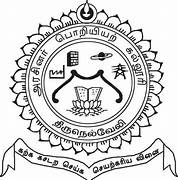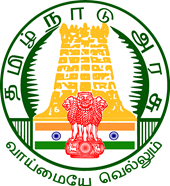
Government College of Engineering
Tirunelveli, Tamil Nadu | Established 1981
Approved by AICTE, New Delhi | Affiliated to Anna University

Tirunelveli, Tamil Nadu | Established 1981
Approved by AICTE, New Delhi | Affiliated to Anna University
Strategic Roadmap for Excellence & Growth (2023-2030)
The Institutional Development Plan (IDP) for Government College of Engineering, Tirunelveli outlines our comprehensive strategy to transform into a world-class technical institution. This seven-year roadmap focuses on academic excellence, research innovation, infrastructure modernization, and sustainable development.
Our development plan is built on four strategic pillars: Academic Excellence, Research & Innovation, Infrastructure Development, and Community Engagement. Each pillar contributes to our mission of producing globally competent engineers while serving the regional and national development needs.
Four foundational areas driving our institutional transformation and growth
Phased approach to achieving our strategic objectives over seven years
Infrastructure assessment, curriculum review, faculty development planning, and baseline establishment for all key performance indicators. Implementation of basic digital infrastructure and quality assurance systems.
Faculty skill enhancement, research infrastructure development, industry partnerships establishment, and modernization of laboratory facilities. Launch of innovation and entrepreneurship cell.
Complete digitalization of academic processes, smart campus initiatives, advanced research facility establishment, and international collaboration agreements. Implementation of outcome-based education.
Centers of Excellence operational, significant research output increase, industry-sponsored projects, and enhanced student placement rates. Green campus certification achieved.
Technology transfer office establishment, startup incubation success stories, international student exchange programs, and recognition as a premier technical institution in the region.
International accreditation achievements, global research collaborations, significant patent portfolio, and establishment as a model institution for other engineering colleges.
Sustainable growth model establishment, mentoring network for other institutions, comprehensive impact assessment, and preparation for the next development cycle.
Measurable goals to track our progress towards institutional excellence
Proactive identification and management of potential challenges
Challenge: Funding shortfalls or budget constraints
Mitigation: Diversified funding sources, phased implementation, contingency reserves (15% of budget), alternative funding partnerships
Challenge: Faculty retention and skill gaps
Mitigation: Competitive compensation, professional development opportunities, succession planning, industry expert recruitment
Challenge: Rapid technological obsolescence
Mitigation: Future-ready infrastructure, regular technology updates, industry advisory support, flexible procurement policies
Challenge: Policy changes and compliance requirements
Mitigation: Regular compliance audits, government liaison, adaptable implementation framework, legal advisory support
Statistical data, rankings, financial indicators, enrollment numbers
Stakeholder feedback, satisfaction surveys, case studies
Accreditations, awards, media coverage, peer recognition
Social impact, industry contribution, regional development
For detailed information about our Institutional Development Plan or to contribute to our transformation journey, please reach out to our planning committee.
0462-2552450 (Ext: 101)